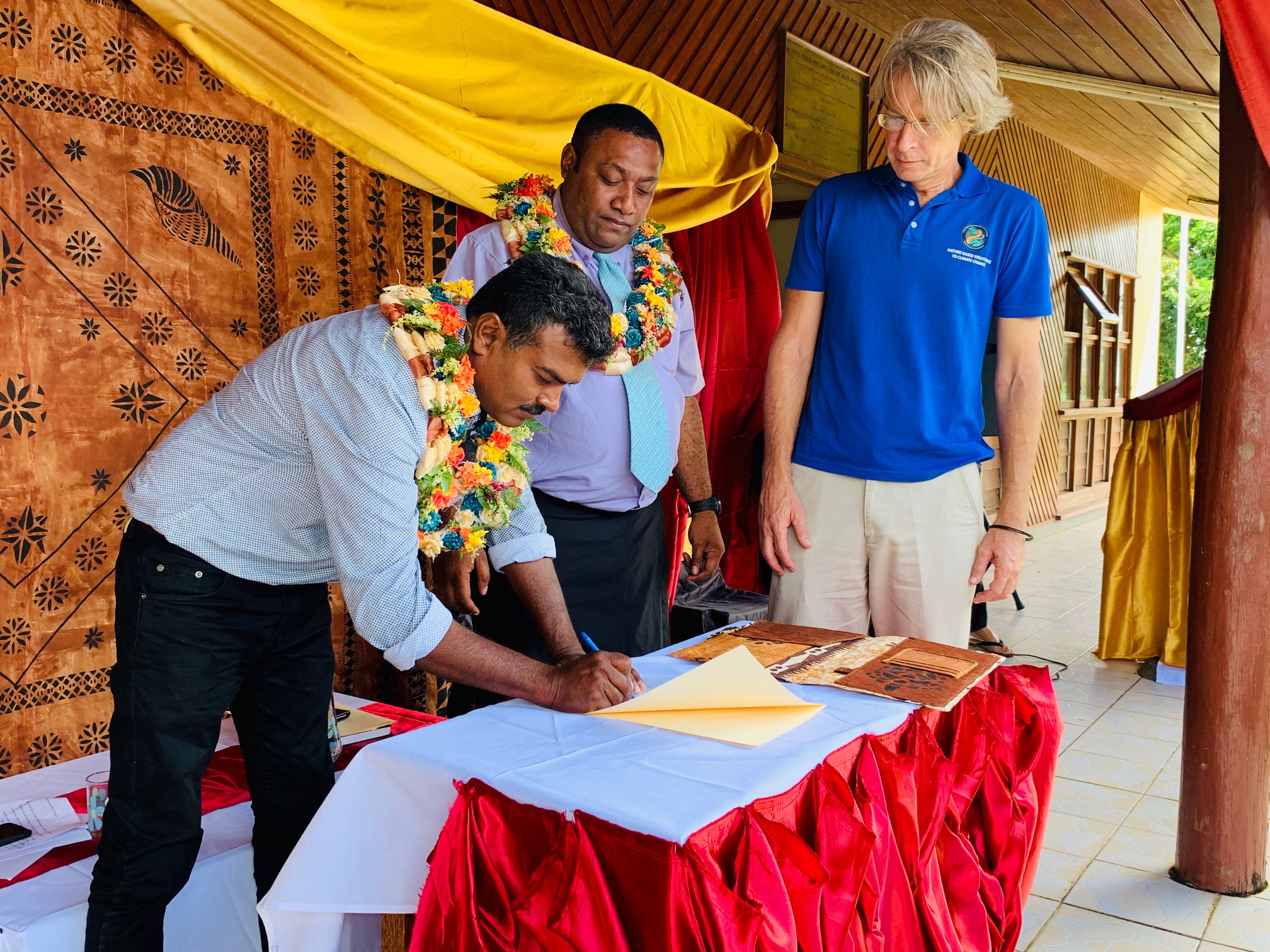
Mua Native Tree Nursery to Play Part in Pacific-Ecosystem Climate Project
Laying the foundation for
reforestation and agroforestry in Taveuni, the Mua Native Tree Nursery was
handed over to the Ministry of Forestry and the Ministry of Agriculture by the Secretariat of the Pacific Regional Environmental
Programme (SPREP) as part of the Pacific Ecosystem-based Adaptation to Climate
Change (PEBACC) Project on Wednesday 29th July, 2020 at Mua Taveuni.
In
his opening address, the Ministry for Forestry Director North Mr. Moape Lotawa
said that “Native
trees are part of our culture, our identity, and our heritage. Through logging and
other less sustainable land-use practices, our native tree stocks have become less
and sparse making it more difficult to
show the younger generation the value of these trees when they don’t grow as
abundantly as they once did.”
“This nursery will help to
restore the balance by restocking native trees into identified deforested areas
in Taveuni. Native trees adapt well to
the local Fijian climate so trees like Vesi and Bauvudi will once again stand
tall in our forests.”
The Native Tree Nursery
was constructed by SPREP through the PEBACC project in collaboration with the
Ministry of Forestry in 2018. The nursery was constructed to supply seedlings to the Taveuni Reforestation
and Agro-forestry Programme, an ecosystem-based adaptation (EbA) programme
under PEBACC supported by the Ministries of Forestry, Agriculture and
iTaukei Affairs.
Echoing similar sentiments, Ministry of
Agriculture Senior Research Officer Mr. Rohit Lal said that “replanting of Agroforestry
and native trees are part of sustainable farming systems which the Ministry advocates.
And for this reason the
Ministry of Agriculture supports this initiative, of setting up the native tree
nursery at our Research and Development Centre at Mua”.
The The nursery will not only supply native tree seedlings to our farmers but will
ensure reforestation of our garden island. These in return will ensure
sustainable land and farm management for our future generations”.
The nursery can hold up to 50,000 seedlings. Currently, native trees being nurtured in the facility include Vesi, Yasi, Dilo, Tavola, Kaudamu, Dakua, Makadre, Sea, Dawa, Duvula, Male, Ivi, Moivi and Kaunicina. Seedlings of Soursop, Avocado and Vetiver grass are also grown in the nursery.
“The nursery provides communities with access to viable healthy native tree
seedlings to help efforts to rehabilitate their watersheds and agricultural
lands,” said Mr Herman Timmermans, PEBACC Project Manager.
“To date over 4,000
native and fruit tree seedlings have been planted in the districts of
Wainikeli, Cakaudrove and Vuna under this initiative.”
With the current phase of
PEBACC ending at the end of July, the Ministry of Forestry has agreed to take
over the management, maintenance, and further development of the nursery. This includes the appointment of a permanent
Nursery Manager and delivery of seedlings to partners. In the interests of
inter-Ministerial cooperation, the Ministry of Agriculture supports the
location of the nursery at the Mua Agricultural Station.
-----------------------------
Background
There are three forest reserves in Taveuni - Taveuni Forest Reserve with 11,160 hectares of land, Ravilevu Nature Reserve with 4108 hectares of land and Bouma National Heritage Park with 1417 hectares of land. These reserves support a wider diversity of native tree species and are conserving sensitive resources such as steep slopes, fragile young volcanic soils and habitat for rare endemic and native flora and fauna species.
The forest reserves protect more than
100 streams and four rivers. However, current trends of widespread soil
degradation on the island and the increasing demand for fertile agricultural
land mainly for taro (Colocasia esculenta) and yaqona (Piper methysticum)
production is threatening this forest reserve. An assessment of these forest
reserves by the Secretariat of Pacific Community in 2015 showed that farmers
are encroaching into forest reserves to get short term yield gains without
realising the negative consequences of their activity on the environment.
According to them encroachment
of farming activities into forest reserves will continue unless sustainable
farming practices are developed to maintain higher yields in their existing
farms.
---------------------------
The
Pacific Ecosystem-based Adaptation to Climate Change Project is a five-year
initiative implemented by the Secretariat of the Pacific Regional Environment
Programme (SPREP) in partnership with the governments of Fiji, Solomon Islands
and Vanuatu. The project is part of the International Climate Initiative (IKI).
The German Federal Ministry for the Environment, Nature Conservation and
Nuclear Safety (BMU) supports this initiative on the basis of a decision
adopted by the German Bundestag. The Project focuses on strengthening and
protecting the role of natural ecosystem services to enhance resilience to
climate change.